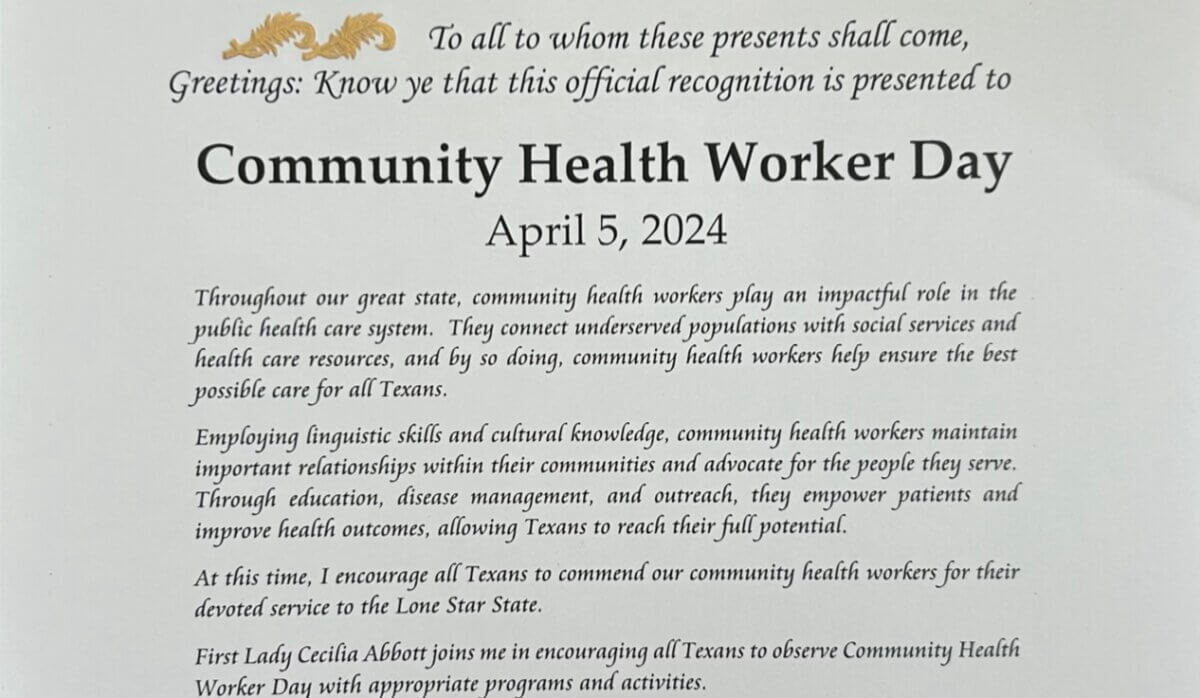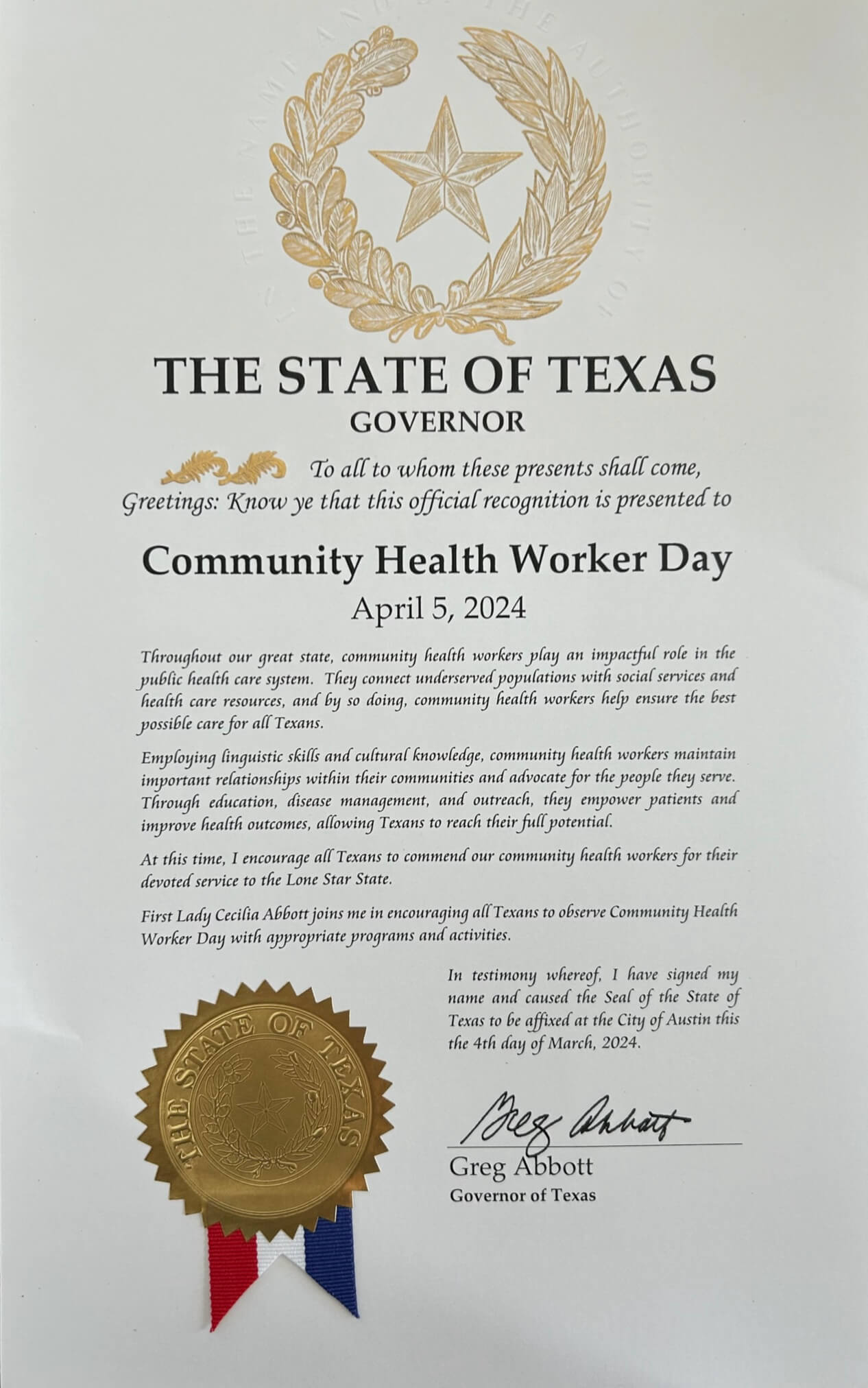Articles and Information
 Apr 05
Apr 05
The Unsung Heroes: Community Health Workers
Avenue 360 Health + Wellness joins the State of Texas in recognizing and celebrating Community Health Worker Day.

In the tapestry of public health, this group of unsung heroes tirelessly weave connections, advocate for wellness, and bridge gaps between communities and healthcare systems. CHWs are trusted members within the community who advocate for health education and information, informal counseling, and social support and depending on the organization they represent, they work tirelessly within communities to deliver these services with or without compensation.
CHWs have a significant impact on the lives of countless individuals.
Advocacy and Education
CHWs are community members themselves, deeply embedded in the neighborhoods they serve. Their familiarity with local culture, language, and customs allows them to build trust with residents. They become the go-to resource for health-related information, addressing concerns and dispelling myths. Whether it’s explaining the importance of vaccinations, promoting preventive screenings, or encouraging healthy lifestyle choices, CHWs are the trusted voices that resonate within their communities.
Cultural Competence
Health disparities persist across different ethnic and socioeconomic groups. CHWs play a pivotal role in bridging this gap. They understand the unique needs of diverse populations and tailor their services accordingly. From assisting non-English speakers in navigating healthcare systems to ensuring culturally appropriate care, CHWs champion health equity. Their ability to communicate effectively across cultural boundaries is a powerful tool in reducing disparities.
Access to Care
For many individuals, accessing healthcare can be daunting. CHWs serve as navigators, guiding community members through the maze of appointments, insurance paperwork, and referrals. They connect people to primary care providers, mental health services, and social support networks. By breaking down barriers, CHWs improve access to essential healthcare services, especially for those who might otherwise fall through the cracks.
Health Promotion and Education
Prevention is the cornerstone of public health. CHWs engage in health promotion campaigns, organizing workshops, community events, and educational sessions. Whether it’s teaching diabetes management, promoting prenatal care, or advocating for healthy nutrition, CHWs empower individuals to take charge of their well-being. Their grassroots efforts create ripples of positive change, leading to healthier communities.
Individual Empowerment
CHWs don’t just provide information; they empower individuals to advocate for their own health. They teach self-management skills, encourage active participation in decision-making, and foster a sense of ownership. By empowering community members, CHWs contribute to long-term health improvements. Whether it’s helping someone quit smoking, manage chronic conditions, or access mental health resources, CHWs are catalysts for positive transformation.
Cost-Effective Solutions
In an era of rising healthcare costs, CHWs offer cost-effective solutions. Their services prevent unnecessary emergency room visits, reduce hospital readmissions, and enhance preventive care utilization. By addressing health issues early, CHWs save both lives and healthcare dollars. Their impact extends beyond individual patients to the entire community.
Building Resilience
CHWs are on the frontlines during crises—be it natural disasters, pandemics, or community outbreaks. They provide emotional support, disseminate accurate information, and ensure vulnerable populations receive timely care. Their resilience and adaptability shine through adversity, reinforcing community bonds and fostering hope.
Often the heartbeat of public health, we celebrate and recognize their dedication and compassion to connect equitable health care to those in need, one community at a time.
The information contained in this Avenue 360 Web site is not a substitute for medical advice or treatment, and Avenue 360 recommends consultation with your Avenue 360 doctor or health care professional.